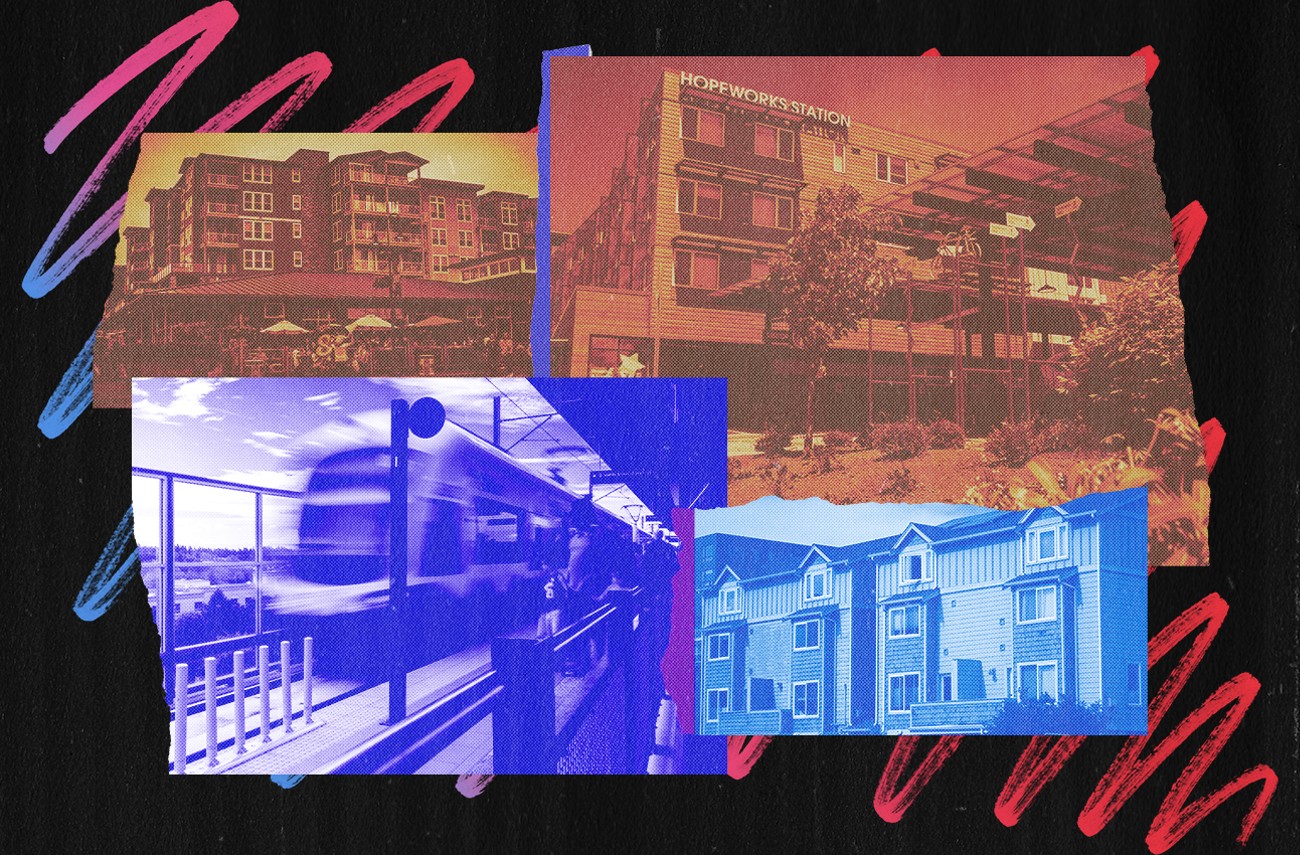State of the State 2023
Jan 12, 2023 at 12:24 pm
Years Into a Housing Crisis, the State Might Let Us Build More Places to Live This Year!
Legalize it.
Anthony Keo
Comments
Please wait...
Comments are closed.
Commenting on this item is available only to members of the site. You can sign in here or create an account here.














So, the state will simply over-ride local zoning codes and upzone the state. (To emphasize the top-down nature of this act, both sponsors of this bill represent Olympia.) Upzoning single-family neighborhoods is the slowest method of getting new housing, because it could take years, decades, or even generations for any given house to be sold, and even then, the new owner might not want to tear it down to build higher-density housing. For this same reason, it’s also the hardest type of density increase for city planners to accommodate. How many decades will it take for each neighborhood to add the same amount of new housing which could be created with one new high-rise in Belltown?
Now consider what happens when enough single-family homes have indeed been converted to multi-family units. How long has it taken for Seattle NOT to build grade-separated transit which extends into neighborhoods? As there are no plans to build any such transit, what happens to traffic on streets laid out for single-family density? Will there be allowances for multiple times as many cars? Or do the new residents walk 10-20 blocks for the mass transit we’re building now?
(I like the breezy assurance from a current City Council member that all of these concerns will be addressed. For years now, citizens of Seattle have literally been screaming at town hall meetings about the homelessness crisis. How’s fixing that going, Council Members? Are you still trying to monkeywrench the Mayor’s encampment sweeps?)
How about some legislative assurance that property taxes won’t immediately increase due to changes to “highest and best use” (ability to build more units/density)? That’s an affordability reality for people who managed to buy homes and for rental housing providers. It’s like a regulation/affordability doom spiral.
The shortage of housing causes housing prices to increase rapidly. Too many people are trying to buy too few homes, and they are bidding up the price. An increase in the amount of housing will cause prices to rise more slowly, which will help to keep property taxes from rising rapidly.
The real political problem to overcome is that many homeowners - who are also voters - want housing prices to keep rising rapidly. They'll put up with higher and higher property taxes as long as the value of their biggest asset continues to appreciate.
@3, do you have any sources to support this? The homeowners I talk to are simply looking to stay where they have lived their whole lives, not cash out. See also displacement of BIPOC in central and south Seattle, seniors, and large households/families (new construction are typically 2bd or less). Where do these boogie man landowner stereotypes come from?
@3 if a property gets rezoned and the land becomes more valuable due to its potential use property taxes are going to rise as a result which could potentially force some people to sell. That's a real issue but the urbanists would say the current owner is not maximizing its use and deserves to be pushed out. That's why stuff like this doesn't really move through the legislature.
I live in a neighborhood where single family homes are being replaced with duplexes and triplexes… that cost almost $1m each.
There needs to be an emphasis on more AFFORDABLE housing rather than just more housing, with hopes that the supply/demand equation will eventually balance things out.
It used to be that deregulation was the favorite cause of the right wing. The template for this kind of top-down abolishment of zoning was pioneered by The American Enterprise Institute. Suddenly it’s rebranded as the warm and fuzzy “missing middle housing” and the “left” is on board, embracing deregulation and the erasure of sense of place as a populist measure that is going to somehow cure homelessness, stop global warming and make up for the racist redlining of the last century. Great marketing by the Master Builders Association. 25% of landfill comes from the demolition of houses for development— how’s that for “green?”
This bill upzones all cities with more than 6,000 residents and abolishes single family neighborhoods. It overrides existing comp plans and the existing growth management plans and makes categorical exemptions to the State Environmental Policy Act for residential or mixed-use development. You bought a home in Lake Forest Park? Say goodby to the Forest and put a postcard of a National Park on your refrigerator: soon you will look like Ballard, wall to wall hardiplank.
Locally, King County’s own Urban Growth Capacity Report states that after recent upzones King County has capacity for 400,000 additional housing units and 600,000 jobs, far exceeding GMA targets. We have not even begun to develop what is possible under current policies. The bill does nothing to make housing more affordable, and is driven by the unproven idea that if you just add more housing prices go down. Seattle has added more housing in the last decade than almost any other US city, adding 19% more housing in 20 years (US census). Our housing prices have doubled and in some cases tripled in that time. There are ways to create affordable housing, but incentivizing the further erasure of family-sized homes and their replacement with new luxury townhomes and apartments is not one of them. Median price of a new townhome:$900k-1 million depending on neighborhood, average size 1,500 square feet.
Links: https://www.seattle.gov/opcd/population-and-demographics/about-seattle